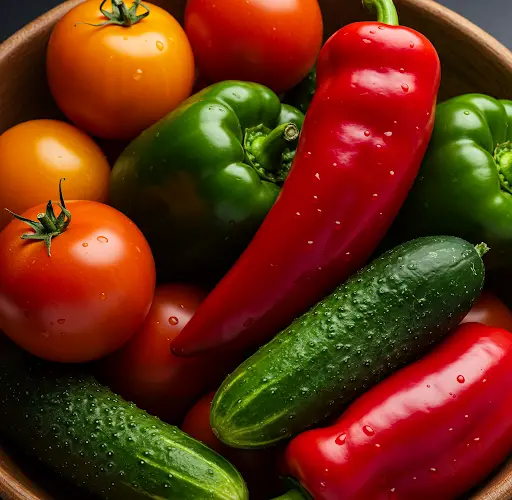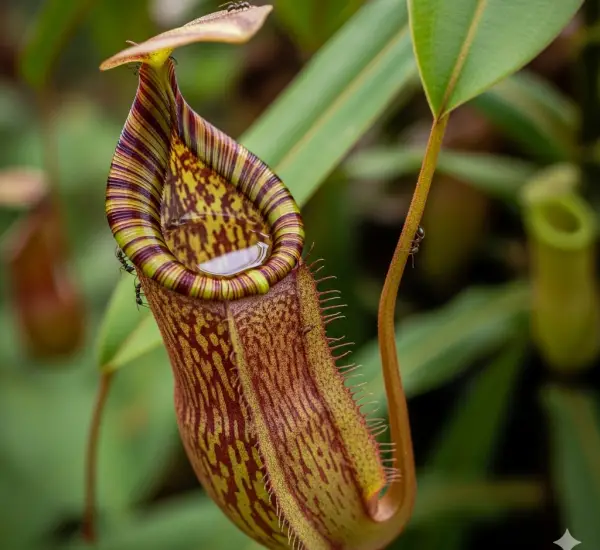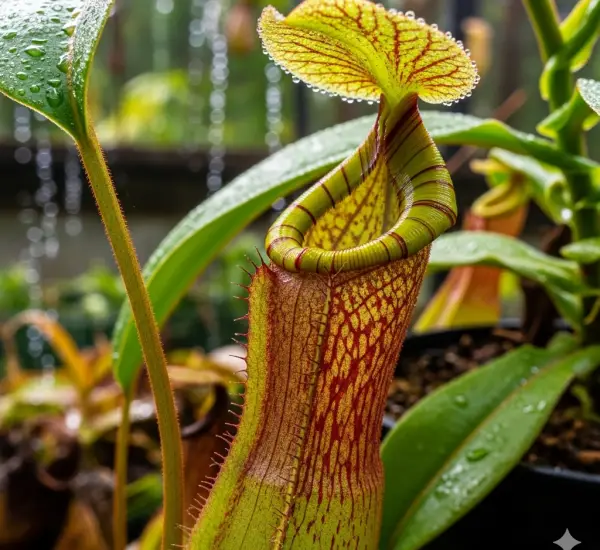Protect Tomatoes, Peppers, and Cucumbers Naturally During the Critical Fruiting Period
As the fruiting phase begins for tomatoes, peppers, and cucumbers, it’s more important than ever to keep these plants healthy. This period is crucial because the quality and quantity of your harvest depends on the plant’s ability to stay strong and disease-free. Unfortunately, frequent weather fluctuations—alternating rainy and sunny days, sudden temperature drops—can create the perfect environment for fungal diseases to thrive.
Diseases like tomato blight, powdery mildew, and leaf spot not only reduce yields but can sometimes destroy entire plants if left untreated. For gardeners looking to grow naturally and avoid chemical fungicides, there are effective alternatives that can protect crops without compromising the safety of the fruit—even when they’re already forming.
The Importance of Preventive Care During Fruiting Season
Tomatoes, cucumbers, and peppers are particularly vulnerable to fungal infections when temperatures fluctuate and humidity rises. Moist conditions from rain or overhead watering combined with heat can trigger the rapid spread of diseases. At the same time, the fruiting phase is when you want to avoid applying synthetic chemicals that could compromise the safety of your produce.
Using natural sprays allows you to protect your plants throughout the growing season without worrying about harmful residues. Two of the most effective and accessible natural fungicides are milk and baking soda. Both are safe, affordable, and widely used by organic gardeners to prevent and manage fungal diseases.
Milk Spray: A Natural Fungicide and Growth Booster
Milk has long been used as a natural remedy for plant disease. It contains proteins and enzymes that help fight fungal pathogens and even some insects that struggle to digest lactose. In addition to its antifungal properties, milk also provides nutrients that can serve as a gentle fertilizer, strengthening the plant’s defenses.
How to make a milk spray:
-
Preventive Use: Mix 1 liter of milk with 9 liters of water (a 1:9 ratio).
-
For Infected Plants: Use a stronger mix, such as a 1:5 ratio (2 liters of milk in 10 liters of water), for better results.
Spray the mixture thoroughly on the plant, covering both the tops and undersides of leaves. After spraying, milk forms a thin protective film on the plant’s surface, which acts as a barrier to fungal spores and pathogens.
While store-bought cow’s milk works for this method, raw milk (unpasteurized and unprocessed) is considered more effective due to the presence of natural beneficial bacteria and enzymes.
Milk is especially useful for:
-
Tomatoes, which are prone to blight and mildew
-
Peppers, where it supports healthy early growth and strengthens young plants
-
Cucumbers, which often suffer insect damage and leaf fungal infections
This natural preparation can be used multiple times during the season without harming the plant or the developing fruit.
Baking Soda Spray: Balancing pH and Blocking Disease
Baking soda (sodium bicarbonate) is another powerful tool in the natural gardener’s toolkit. It works by increasing the pH level on the leaf surface, making it difficult for fungal spores to germinate and spread.
How to make baking soda spray:
-
Dissolve 50 grams of baking soda in 10 liters of water.
-
Stir well until completely dissolved.
-
Spray every 7 days for consistent protection.
This solution is ideal for controlling a wide range of fungal diseases such as:
-
Tomato blight
-
Powdery mildew
-
Leaf spot
-
Downy mildew
Spraying should be thorough, making sure to coat the leaves evenly. For best results, alternate between milk spray and baking soda spray—one week with milk, the next with baking soda. This rotation helps prevent fungi from adapting and increases the overall effectiveness of the treatments.
Extra Benefits of Baking Soda
Beyond disease control, baking soda can also help deter some pests, such as snails and slugs, which dislike the altered leaf surface after spraying. It’s safe to use throughout the growing season and won’t harm beneficial insects or pollinators.
Because baking soda is food-safe, you can continue spraying even when fruits are forming and ripening. This makes it an ideal solution during the critical fruiting period when plants are still susceptible to disease, but you want to avoid chemicals.
Natural Gardening Made Easy
Keeping your garden healthy doesn’t require chemical sprays. With simple ingredients like milk and baking soda, you can protect your plants, enhance their growth, and ensure a safe, bountiful harvest. Use these sprays consistently and watch your tomatoes, cucumbers, and peppers thrive—even in unpredictable weather conditions.
Whether you’re an experienced gardener or just starting out, these homemade remedies are a practical and effective way to support your plants through one of the most crucial stages of the growing season.



